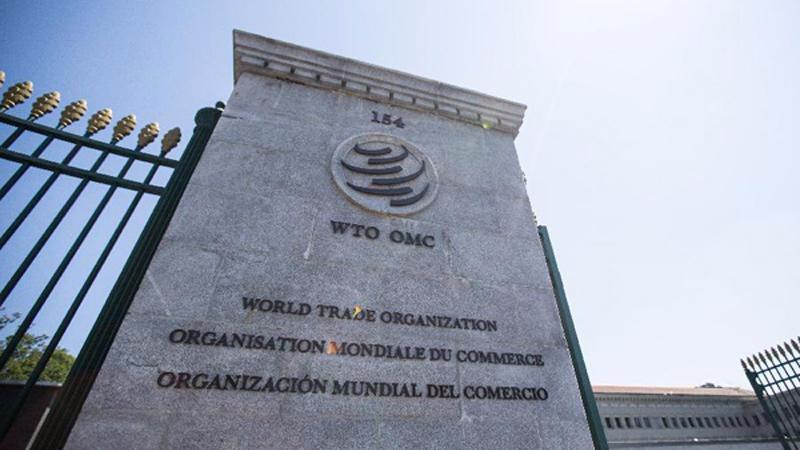Media Report

- BBC News reports: "President Trump's backing for slapping tariffs on imports of washing machines and solar panels will hit China and South Korea hardest. And it has opened up the prospect of some retaliation - especially from Beijing. The hardline Chinese publication Global Times says "nothing good" would come out of a trade war with President Trump, and has warned that China could fight back. There's lots at stake. The two countries did $578.6bn worth of trade in 2016. And by the US government's own estimates that trade supports just under a million American jobs... China doesn't want a trade spat to from escalate into a more damaging confrontation. If a trade war between the two countries does escalate, it won't just be Beijing and the US losing out. The wider Asian region could suffer too, simply because of how integrated global supply chains are. But we might well be just days away from more tariffs - with President Trump to soon decide whether to slap extra duties on steel and aluminium imports. China is the world's largest producer of both."
- The Wall Street Journal reports: "The Trump administration's top sanctions envoy pressed China in high-level meetings this week to deliver on commitments to expel North Korean agents helping finance Pyongyang's nuclear weapons and missile programs. Sigal Mandelker, Treasury Under Secretary for Terrorism and Financial Intelligence, urged Chinese officials in Beijing to comply with obligations under United Nations sanctions to oust what the U.S. calls North Korean 'financial facilitators.' Ms. Mandelker declined to say how many North Koreans she asked be expelled. The U.S. has identified more than two dozen North Koreans as currently or previously based in China and linked to North Korea's banks or weapons programs. She said she stressed 'the importance of expelling those individuals' and suggested that failure to act could make Chinese banks targets for future sanctions. 'We believe that every day that a financial facilitator continues to reside here in China, or frankly in any country, is another day that their banks are put at risk because, again, these are individuals who are skilled at manipulating the financial system,' Ms. Mandelker said in an interview in Beijing on Tuesday. China's Foreign Ministry did not immediately respond to a request for comment."
- The New York Times comments: "They call themselves 'silence breakers,' circulate petitions demanding investigations into sexual harassment and share internet memes like clenched fists with painted nails. But Chinese women are finding it difficult to organize a far-reaching #MeToo movement, going up against not just a male-dominated culture but also the ruling Communist Party itself. Government censors, apparently fearing social unrest, are trying to hobble the campaign, blocking the use of phrases like 'anti-sexual harassment' on social media and deleting online petitions calling for greater protections for women. And officials have warned some activists against speaking out, suggesting that they may be seen as traitors colluding with foreigners if they persist. 'So many sincere and eager voices are being muted,' said Zhang Leilei, 24, an activist in the southern city of Guangzhou who has helped circulate dozens of petitions among college students. 'We are angry and shocked.' Women are demanding investigations into bosses, teachers and co-workers. They are pressing universities to investigate harassment complaints more forcefully. And they are taking to social media to rail against sexism and denounce the lack of women in high office."
Calendar
- 2018-01-23 U.S. Tariffs, Aimed at China and South Korea, to Hit Targets Worldwide
- 2018-01-22 Trump’s moment of truth on China has arrived
- 2018-01-21 China's breathtaking transformation into a scientific superpower
- 2018-01-19 Trump's defense strategy sees China and Russia as biggest threats
- 2018-01-18 China's Economy Growth Look Strong. Maybe Too Strong.
- 2018-01-17 Ex-C.I.A. Officer Suspected of Compromising Chinese Informants Is Arrested
- 2018-01-16 China fake data mask economic rebound
- 2018-01-15 US Plans New Nuclear Weapons
- 2018-01-14 Global investors lick lips as China opens to asset firms
- 2018-01-12 Marriott to China: We Do Not Support Separatists
News
- BBC News What could China do in a US trade war?
- The Wall Street Journal Top U.S. Sanctions Envoy Presses China to Expel North Korean Agents
- Reuters China's state-owned firms to face more mergers, bankruptcies
- CBS News Ross acknowledges U.S. may have picked a trade fight with China
- USA Today China would back a unified Korea if attained through peace, ambassador says
- CNBC The 'real story' behind China's growth is all about consumption, private equity chief says
- CNBC Plagiarism is rampant in China, and its media companies are raking in billions
- Quartz China's new Davos pledge—blue skies, literally, in three years
- CNN Once China's richest man, Wang Jianlin is selling off his global empire
- Reuters As China's Didi looks abroad, challenges spring up at home
- CNBC There's a new Chinese tech trio to look out for, says investment banker
- Reuters China's state-owned firms to face more mergers, bankruptcies
Commentary
- The New York Times 'Me Too,' Chinese Women Say. Not So Fast, Say the Censors.
- Bloomberg China, U.S. Treasuries and Temporary Truths
- Foreign Policy Niall Ferguson Isn't a Contrarian. He's a China Apologist.
- Bloomberg Here Comes the Great Bailout of China
- MIT Technology Review China wants to make the chips that will add AI to any gadget
- The New York Times Apple Can't Resist Playing by China's Rules
- CNBC China's method of business will ultimately beat out the US approach, CEO says
